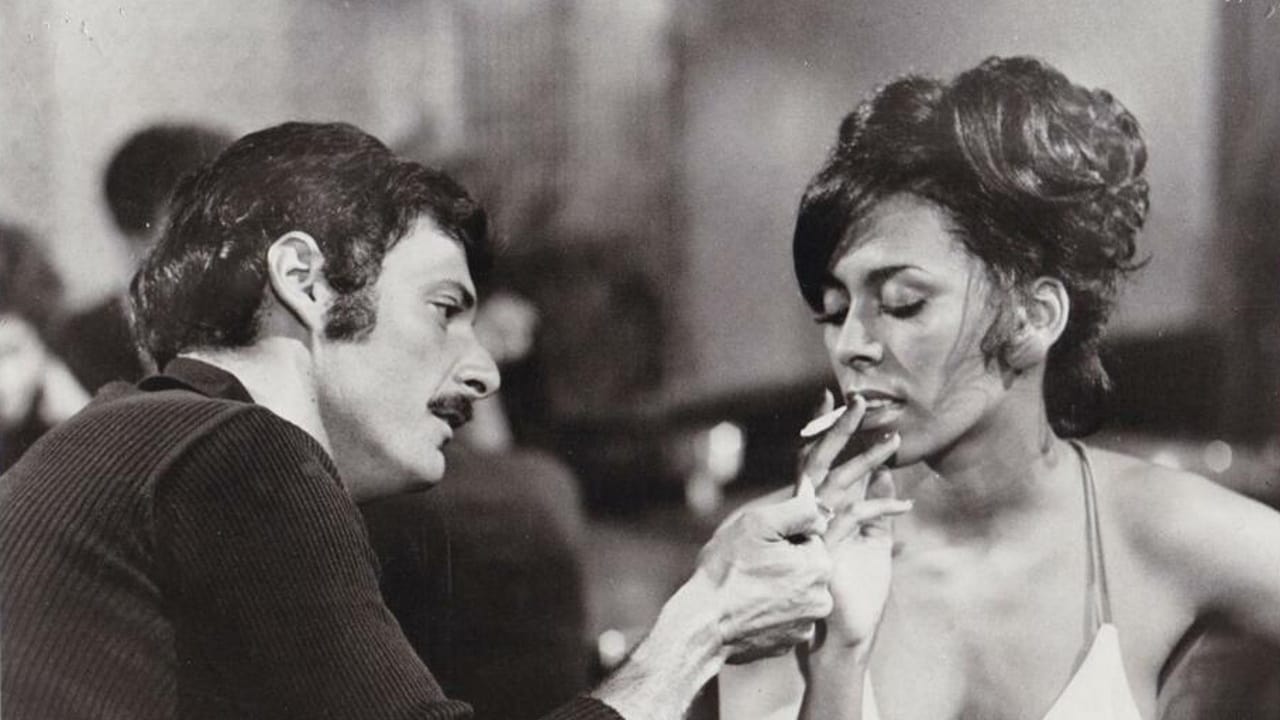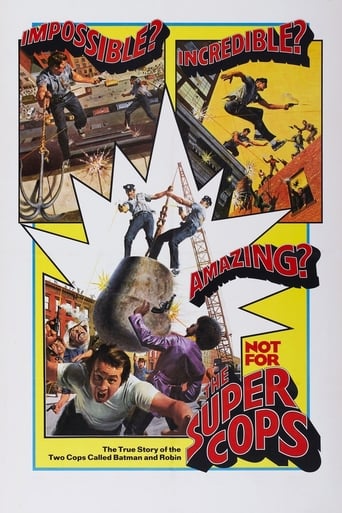

Very well executed
... View MoreOverrated and overhyped
... View MoreGood concept, poorly executed.
... View MoreBad Acting and worse Bad Screenplay
... View MoreBy the late 1960s urban crime was rampant. In 1969, in Harlem, I had a pistol shoved in my face by two twelve-year-old kids who demanded my money, as if I had any. Nobody in Hollywood knew exactly how to deal with it. "Dirty Harry" in 1971 finally broke the ice, if only by addressing the problem in a paradisiacal setting and by turning the perp into a whining serial killer. "Serpico" was dirtier than Harry and dealt with corruption in the police hierarchy. That was 1972. This is 1974 and Ron Liebman and David Selby are two cops who are impatient with the bureaucratic rules, just as Dirty Harry was, and who face racial problems, which neither Harry nor Serpico did.In its essence, it's a more textured film. It's one thing to fight a serial killer or against determined police corruption. The good guy is good and the bad guys are bad. It's another to fight bureaucratic inertia. The enemy is established but nebulous. How do you begin? Liebman and Selby are cocky young rebels even when they are rookies in the NYPD and on probation. They bust drug dealers when they're off duty, and although the number of their collars grows, so does the paperwork, both for them and for the others in their precinct. Nobody likes a rate buster. They make everyone else look slow and lazy.The mad sociologist Max Weber described the transfer of labor from small businesses like farming and shoe making to large bureaucratic organizations like Standard Oil at the turn of the century. Bureaucracies worked very well because it was, ideally, a meritocracy and the lines of authority were strictly drawn. But forty years later, another sociologist, Robert K. Merton, observed that there was a major flaw in bureaucracies. If you stick your neck out by taking risks, you get your head chopped off.If you want promotions, smooth sailing, and a comfortable retirement, you keep your head down and do no more than what the formal rules require. You lose sight of the bureaucracy's goals and concentrate instead on doing what everyone else does -- avoiding responsibility in case something goes wrong. There is a character in "The Good Soldier Schweik" who follows army rules to the letter and by doing so almost brings the war to a complete halt. Merton called it bureaucratic ritualism but we can call it covering your arse or CYA.No ritualist becomes a rate buster. It's bad news for the bureaucracy and what's bad news for the institution soon becomes bad news for the rate buster. The senior cops assign Liebman and Selby to menial tasks like directing traffic and typing office memos.However, they prevail in the face of precinct conspiracies to degrade them and in the end they get a promotion with an ironic footnote attached.I don't mean to ramble on about bureaucracies but although they sound dull -- pathological even -- they're a fascinating subject because all of us have to deal with them in one way or another. Liebman and Selby don't break any of the rules but they demonstrate how informal customs come to be more important than the rules themselves. They may be super cops but others in their department report them to internal affairs for wearing sneakers instead of regulation shoes while chasing crooks.As for the movie itself, Serpico's story had obviously been shaped to add commercial appeal, but this one appears mostly made up. I believe the two super cops ran into problems with their colleagues. I don't believe they hid themselves in an empty cardboard box, began singing a Pepsi-Cola commercial, and then leaped out, guns drawn, and cornered a gang of drug dealers.This is a precursor to the kinds of action movies we commonly see today, in which, say, Arnold Schwarzenegger breaks somebody's neck while making a wisecrack. Of course, it has its serious moments and some scenes are packed with dramatic tension. But the overall emotional tonus is light-hearted.Liebman is great. He's always great, and always Jewish in the most appealing way. It's his movie. Selby is more of a sidekick than a partner. He has an odd face too, something like an owl's, with large eyes, an oversized beak, and a tiny mouth beneath.I enjoyed it, wisecracks and all, and I salute it for addressing a problem that is so shadowy that many of us can't even define it.
... View MoreA Street-Wise Production with Authentic NYC Locations Highlight this Cop/Comedy based on the True Story of the Two Policemen Nicknamed Batman and Robin and The Super Cops by the Media.It is a Fast Paced, almost Highlight Reel, and the Ghetto Backdrop is in Deep Contrast to the Bouncy, Lighthearted Way the Cartoonish Cops go about Their Business of Busting Drug Dealers and other Assorted Criminals.The Institutionalized Corruption and Apathy also play a big part in the Picture but The Film Never gets too Deep into that Sensitive Situation or for that Matter it Hardly Slows Down Enough for the Drug Busts and Implications of the Effects these Scum are having on the Population. It could be Faulted for Being just a bit too Smiley Considering the Devastating Subject Matter.Given that almost Unforgivable Whitewash, the Movie taken on its Own Terms of being an Entertaining and Superficial Take on the Whole Broad Strokes of the Inner Story both on the Streets and In the Precinct, it can be Forgiven as a Lightweight and Sometimes Succinct, Well Directed, Acted, and Written Piece of Faction that Results in a Popcorn Movie with that Seventies Grit and Realism that makes it Hold Up.
... View MoreBased on a true story, Gordon Parks' 1974 film Super Cops is a loose collection of episodes about a couple of honest and determined rookie cops that gradually changes tone. The opening is satirical as titular pair Greenberg and Hantz encounter a police-training program notably for its absurdity. The opening scene is emblematic of the issues the film handles as the head trainer insists that the recruits should form two lines, with the front line composed of the tall men and the back line composed of the shorter men. When told quite logically that this is opposite of the way such things are usually conducted, the head trainer responds that this is just the way things have always been done in this course. The police departments consistently asserts its backwards priorities throughout training, as when a senior officer insists that the rookies mind their post directing traffic while an unopposed gunman takes shots at civilians from a high window a couple of blocks away. This section, which points out the absurdity of a bureaucracy that keeps things from being done instead of aiding them as it should, gets the film off to a particularly good start as it makes its point economically and convincingly while simultaneously displaying a sharp biting wit and establishing the characters and their goals. Greenberg and Hantz quickly make a name for themselves as they take on real police work when they are off duty, arresting drug dealers and other small time crooks who flaunt their crimes before an undefended public. Here again, the police department comes off as the main antagonist as the veterans view these rookies with suspicion and assume their hard work is part of a grift. As the film progresses, the men encounter laziness, corruption, and stupidity at every level of the department and are generally punished for their hard work until they become famous for some of their wilder antics. One such antic has one partner commandeering a city bus and another jumping off a fire escape to get the drop on some out of town hired killers. The humor in such scenes is a bit on the zany side, though not overbearingly so; rather, this complements the more sophisticated jabs at bureaucracy surprisingly well. After the mostly comedic first part, Greenberg and Hantz end up stationed at an undesirable precinct in a particularly dangerous neighborhood and the tone gradually becomes more serious, especially when they work against some well-connected drug distributors who use the department's flaws to their own advantage. Director Parks conveys a sense of tenseness in certain scenes quite well, an especially impressive feat given the comedic sections preceding them. In fact, Parks work is impressive overall, as all aspects of the film are more than competent, though there aren't many moments that really stick out on a technical level. This is an engaging, well-made police film that highlights some of the problems of bureaucracy in general and police bureaucracy particularly with a combination of satirical wit, zany humor, and a few scenes that are a bit more serious.
... View MoreThe 60's loosened up movies a lot. It became okay, for example, to show crooked cops and real poverty. Older Hollywood in its preoccupation with glamour and the Cold War naturally shied away from such inflammatory topics. But the cultural revolt of the Vietnam period insisted on "telling it like it is", and I take this movie to be one of its products.Greenberg (Leibman) and Hantz (Selby) are a couple of rookie cop hotshots who rock the precinct boat with their zeal and unorthodox style. Too bad we never learn what in their backgrounds drives them. Instead, the movie follows them on their exploits without explaining much of anything. It's kind of like watching a collection of sports highlights without the developmental threads of a narrative. Still, the movie never drags or bores, plus the gritty shots of ghetto life are worth the admission price alone. Then too, the screenplay sure doesn't glamorize either the typical cop or precinct life generally. The "feel" here is of the real thing, one of the film's genuine strengths. Unlike most films, however, none of the movie's characters are particularly likable. In fact, I agree with the reviewer who found the quirky Greenberg annoying, while the subdued Hantz remains something of a cypher. Now, there's nothing inherently wrong with this, except by the end, the two appear just the same as they were at the beginning. In short, all the murder, mayhem and human misery have affected them not at all, one way or the other. All in all, the movie's an okay entry in the post-Serpico sweepstakes. Yet, despite its down-and-dirty look at urban policing, the story never manages any needed depth, despite the richness of the material.
... View More